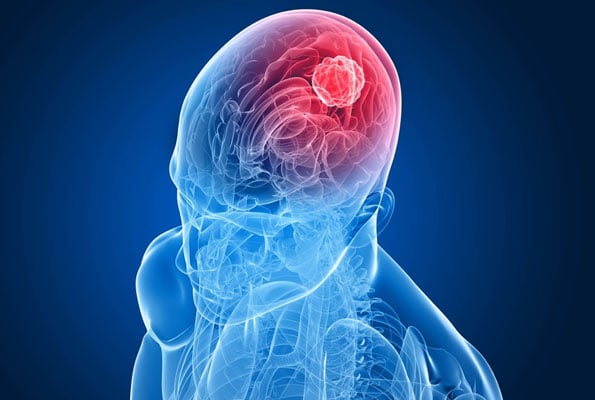A mysterious but lethal tumour

Currently, there are no recorded statistics on cancer of the brain in the country according to Dr Fred Okuku, an oncologist at the Uganda Cancer Institute, Mulago hospital. He however says that according to his observation, most patients that come for treatment are adults and argues that it mainly affects them.
Dr Michael Muhumuza, a Neuro-Surgeon at Mulago hospital, disagrees with him. Dr Muhumuza says that the ratio of adults to children suffering from the cancer could be 40:60 or even 50:50. He says, “There are brain cancers that are common in children and there are those that are common in adults.
So, I can say it is common in both.” Though the cancer(also known as brain tumour) can be found in people of all ages, the doctors say that the older one gets, the higher the chances of getting the disease.
Dr Muhumuza says that they get to know that the prevalence is high because there is a high turn up of patients who come to hospital for treatment. “Currently, at the private ward in Mulago hospital, we have eight patients with tumours; we have operated on eight patients this month.
There are two types of brain cancer. The Primary brain cancer which Dr Okuku says starts from within the brain tissue and is common in adults. Secondary brain cancer is more common according to the oncologist. It starts from other body parts to the brain.
The most common body parts that spread the cancer to the brain are the breast, lung, and colon. He adds that secondary brain cancer can also be caused by a skin cancer known as melanoma. However, he is quick to add that it’s no guarantee that whoever gets cancer in these areas will get the brain cancer. Dr Muhumuza says, “The cancer extends to the brain through blood supply from these other body parts.”
The mystery about the cause
So then, what causes brain cancer? “We have not known the cause of the cancer,” Dr Okuku and Muhumuza say. However, they say that some of the patients inherited it. Another cause is attributed to the bad environment which Dr Okuku says that radiation and toxins can lead to one acquire the cancer. He says, “There has been some speculation about the mobile phones causing brain cancer but there is no strong evidence that they actually do.”
The identifiable symptoms
Dr Okuku says that symptoms vary with age. He says the young patients suffer from headaches, vomiting, coma, seizure, weakness of one part of the body and loss of vision.
For the adults, one will become aggressive, dizzy, one part of their body becomes weak and they maynot be able to control urine and stool. Dr Muhumuza says that for any body part to get affected, it will depend on where the tumour is. If it has touched the speech tissue, then it will be the speech that will be affected, if it’s the vision tissue, then the vision will be affected.
“The brain is in control of all systems (of the body), so, that is why most parts will be affected,” Dr Okuku notes. Dr Okuku says that there are a number of things that can be done to identify the cancer. These include, brain imaging and a number of scans for the brain like a CT scan and MRI scans. If an abnormality is noticed on the brain after the scans and imaging, he says a brain biopsy is done.
This involves taking out a tissue from the patient’s brain and testing it. This helps the doctors know what kind of brain cancer a patient has. The doctors say that the treatment for brain cancer depends on the type of cancer that one is suffering from. If it’s the benign tumour, which Dr Muhumuza says sometimes grows into cancers, surgery can be performed because the boundaries of the tumour from the brain are well defined. This makes it easy to remove.
For the malignant tumour, he says that it is hard to operate because with this type, there are no proper boundaries from the brain tissue. In that case, other kinds of treatment may be given to the patient. These include:
Chemotherapy
The doctors explain that a patient can be given drugs or put on drip to slow down the growth of the existing cancers.
Radiotherapy
This treatment damages the existing cancer cells and stops the growth of any others. However, the doctors say it’s dangerous because sometimes, it may damage the normal cells because it uses high energy radiation.
Whole-brain treatment
here, small doses of radiation are put in the entire brain, both the affected and non-affected. “This is very dangerous; treating the whole brain, but it’s what we have here as others require modern treatment equipment which is not available,” Dr Okuku says.
Dr Muhumuza says that the fee for treatment entirely depends on the type of the tumour one has. In Kenya, it costs $10,000 (approximately Shs28m) in India, $15,000 (approximately Shs43m) and at Mulago hospital in the general ward, it is free. Since the cause is not known, the oncologist says that prevention is a bit of a challenge. However, he says that the younger the patient, the better the response. “In children, if detected early, it can be cured.”



